Taking care of your heart is a big deal, and what you drink plays a huge role in that. This is why there are 15 drinking habits to avoid for a healthy heart. From that morning coffee to the occasional cocktail, what we sip on can make a difference. But don’t worry, it’s not all doom and gloom.
Making a few simple changes can set you on the path to a healthier heart. Whether you’re a fan of sugary drinks, energy boosters, or just love a nightcap, knowing what to avoid can be a game-changer. By being mindful of what you pour into your glass, you can make great strides in protecting your heart and overall well-being.
So, let's talk about some habits that might be worth rethinking for the sake of your ticker. It’s all about making smarter choices and finding perfect alternatives that won’t compromise on taste or enjoyment. After all, a healthy heart means a happier you, and who doesn’t want that?

Excessive Alcohol Consumption

Drinking large amounts of alcoholic beverages can have severe health consequences that extend far beyond a simple hangover. Regularly consuming excessive alcohol can lead to high blood pressure, which strains your heart and arteries, increasing the risk of heart disease. Over time, this can result in serious cardiovascular issues, including heart failure. Moderation is crucial when it comes to alcohol consumption. For most adults, this means limiting intake to up to one drink per day for women and up to two drinks per day for men. By reducing alcohol intake, you can significantly improve long-term health outcomes and enhance well-being.
High Caffeine Intake

Excessive caffeine intake can have several negative effects on the body, such as increased heart rate, elevated blood pressure, anxiety, and disrupted sleep patterns. Sources of caffeine include coffee, tea, energy drinks, and some sodas. It's important to monitor and limit caffeine consumption to avoid these adverse effects. For most adults, up to 400 milligrams of caffeine per day is considered safe, which is about four cups of brewed coffee. Balancing caffeine intake can help maintain heart health and improve sleep quality.
Skipping Water

Inadequate water intake can lead to dehydration, which affects the body's ability to function properly. Dehydration can cause symptoms such as fatigue, dizziness, and confusion, and it can also impact heart health by affecting blood pressure and circulation. Water is essential for maintaining the balance of bodily fluids, regulating temperature, and supporting digestion. It's recommended to drink at least eight 8-ounce glasses of water per day, but individual needs may vary based on activity level, climate, and overall health. Staying hydrated is crucial for overall well-being.
Drinking Before Bed

Drinking beverages, especially those containing caffeine or alcohol, before bedtime, can disrupt sleep quality and patterns. Poor sleep can negatively impact heart health, cognitive function, and overall well-being. Caffeine is a stimulant that can interfere with the ability to fall asleep, while alcohol can disrupt the sleep cycle, leading to less restful sleep. To promote better sleep, it's advisable to avoid caffeine for at least six hours before bedtime and limit alcohol consumption in the evening. Establishing a healthy sleep routine supports cardiovascular health and overall wellness.
Ignoring Portion Sizes
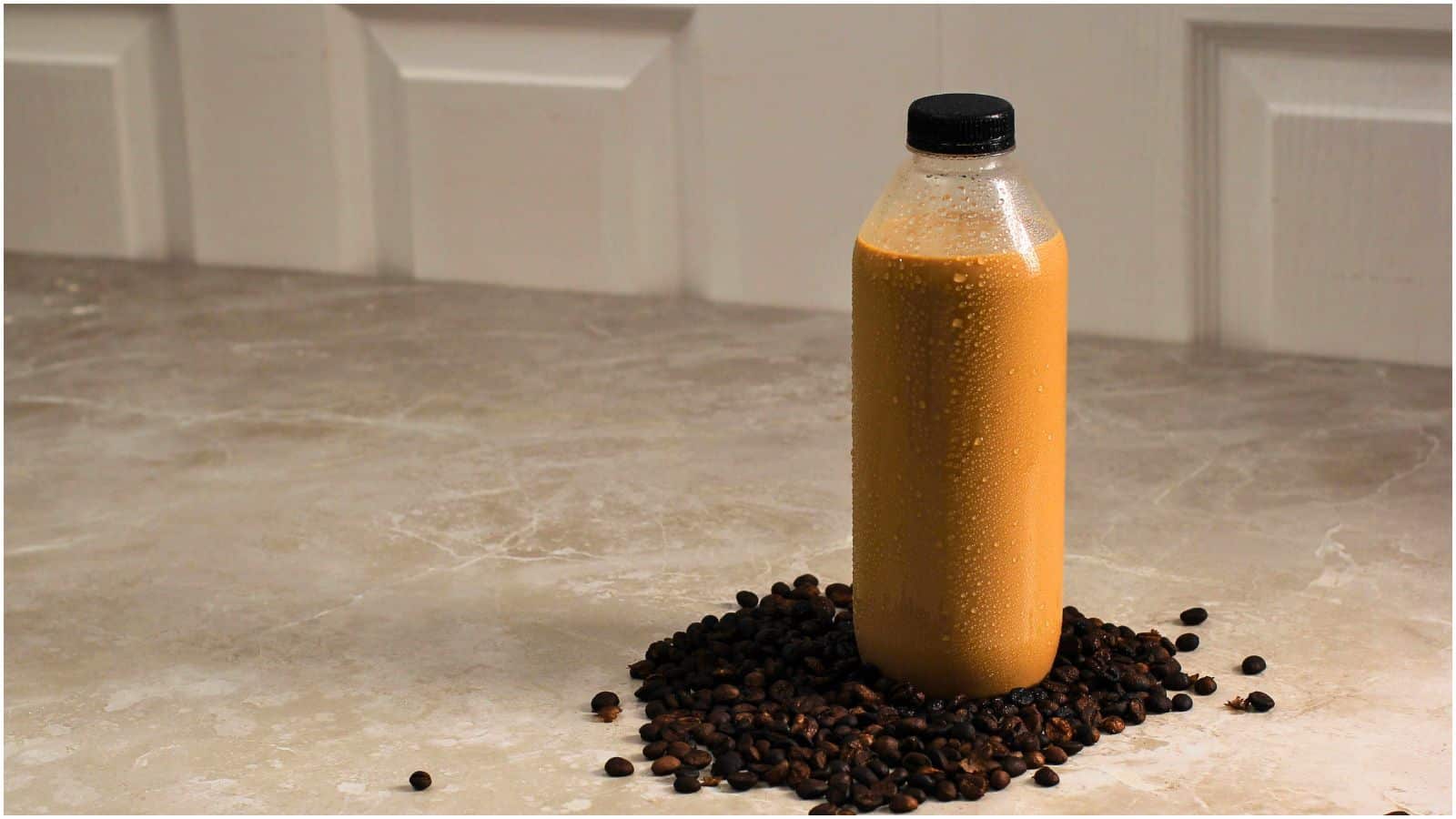
Drinking large portions of beverages, even those considered healthy, can lead to excessive calorie and sugar intake. This can contribute to weight gain, which is a risk factor for heart disease and other health issues. Monitoring portion sizes helps maintain a balanced diet and supports heart health. For example, a standard serving size for fruit juice is typically 4 to 6 ounces, yet many people consume much more in one sitting. Being mindful of portion sizes and reading nutrition labels can help manage calorie intake and promote a healthier lifestyle.
Consuming Fruit Juices
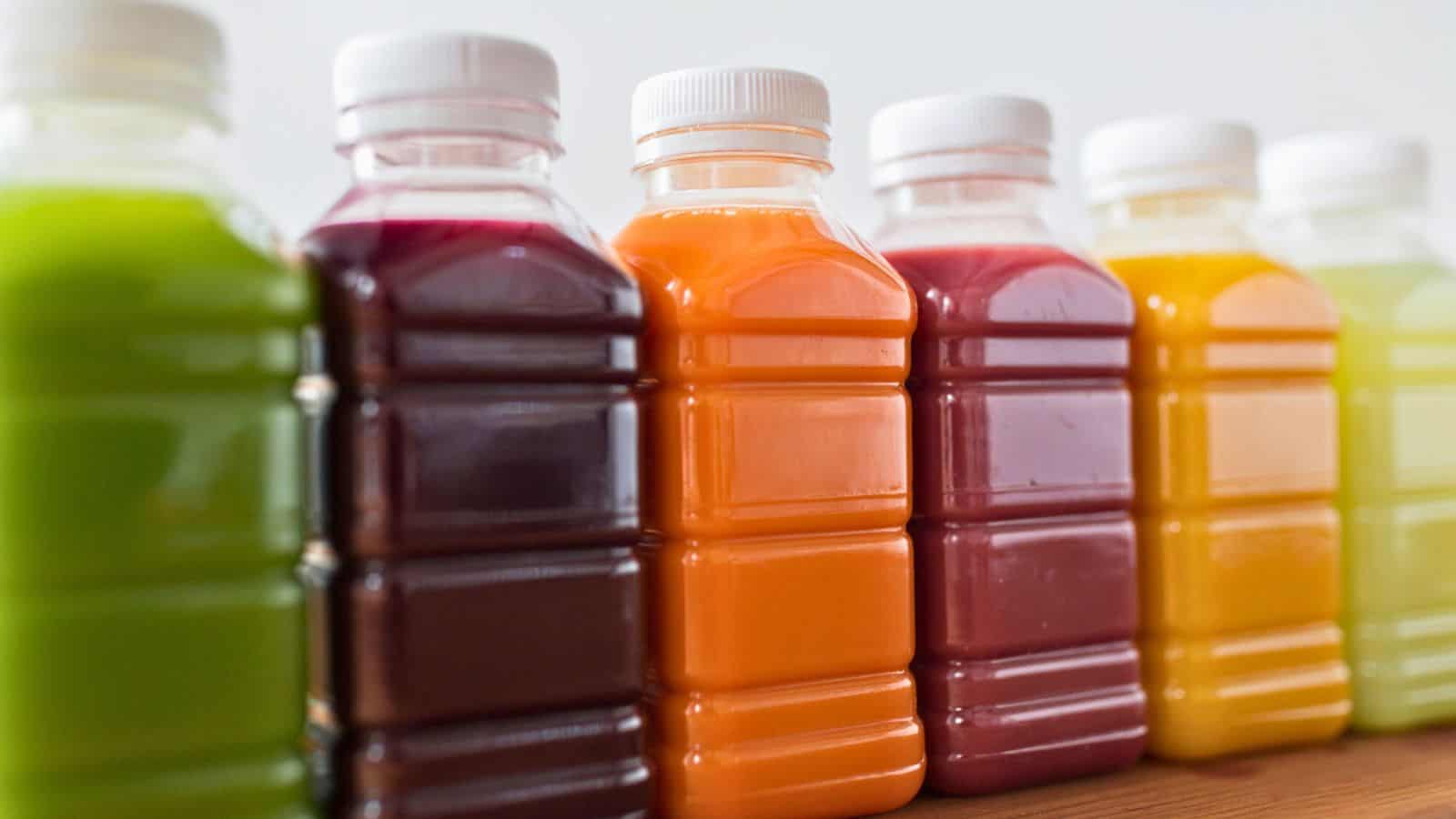
While fruit juices can be a source of vitamins and nutrients, they are often high in sugar and calories. Drinking large amounts can lead to weight gain and increased blood sugar levels, which are risk factors for heart disease. It's important to consume fruit juices in moderation and opt for whole fruits when possible, as they have fiber and help regulate sugar absorption. Diluting juice with water or choosing low-sugar options can also help reduce calorie intake and support a healthier heart.
Ignoring Labels

Not paying attention to the nutritional information on beverage labels can lead to unintended consumption of unhealthy ingredients, such as added sugars, artificial sweeteners, and high sodium levels. These additives can negatively impact heart health by increasing blood pressure and contributing to weight gain. Reading labels carefully allows you to make informed choices about what you drink, helping to maintain a balanced diet and support cardiovascular health. Prioritizing beverages with natural ingredients and low sugar content can make a significant difference in overall well-being.
Relying on Meal Replacement Shakes

Depending heavily on meal replacement shakes can sometimes lead to nutritional imbalances. These shakes may lack essential nutrients and often contain added sugars and artificial ingredients. While they can be convenient, it's important to make sure they are part of a varied and balanced diet. Incorporating whole foods, such as fruits, vegetables, lean proteins, and whole grains, can give you a broader range of nutrients necessary for heart health. Using meal replacement shakes occasionally, rather than as a primary food source, can help maintain a better nutritional balance.
Drinking Too Quickly

When you drink too quickly, you can experience bloating and discomfort as your stomach fills up faster than it can process the liquid. This can cause a feeling of fullness and pressure that is not only uncomfortable but can also lead to digestive issues. Additionally, drinking too quickly increases the risk of choking, especially if you are consuming thicker drinks or beverages with ice. Taking the time to sip beverages slowly allows your body to better regulate intake and recognize fullness cues. This mindful approach to drinking helps you maintain a healthy weight and supports cardiovascular well-being.
Not Balancing Electrolytes

Failing to replenish electrolytes, especially after intense exercise or during hot weather, can lead to imbalances that affect heart function and health. Electrolytes, such as sodium, potassium, and magnesium, are crucial for maintaining fluid balance, muscle function, and nerve signaling. Drinking water alone may not be sufficient to restore these essential minerals. Including electrolyte-rich beverages, such as sports drinks or coconut water, can help maintain proper hydration and support heart health. It's important to choose options with low added sugars to avoid negative impacts on cardiovascular health.
Frequently Consuming Sports Drinks
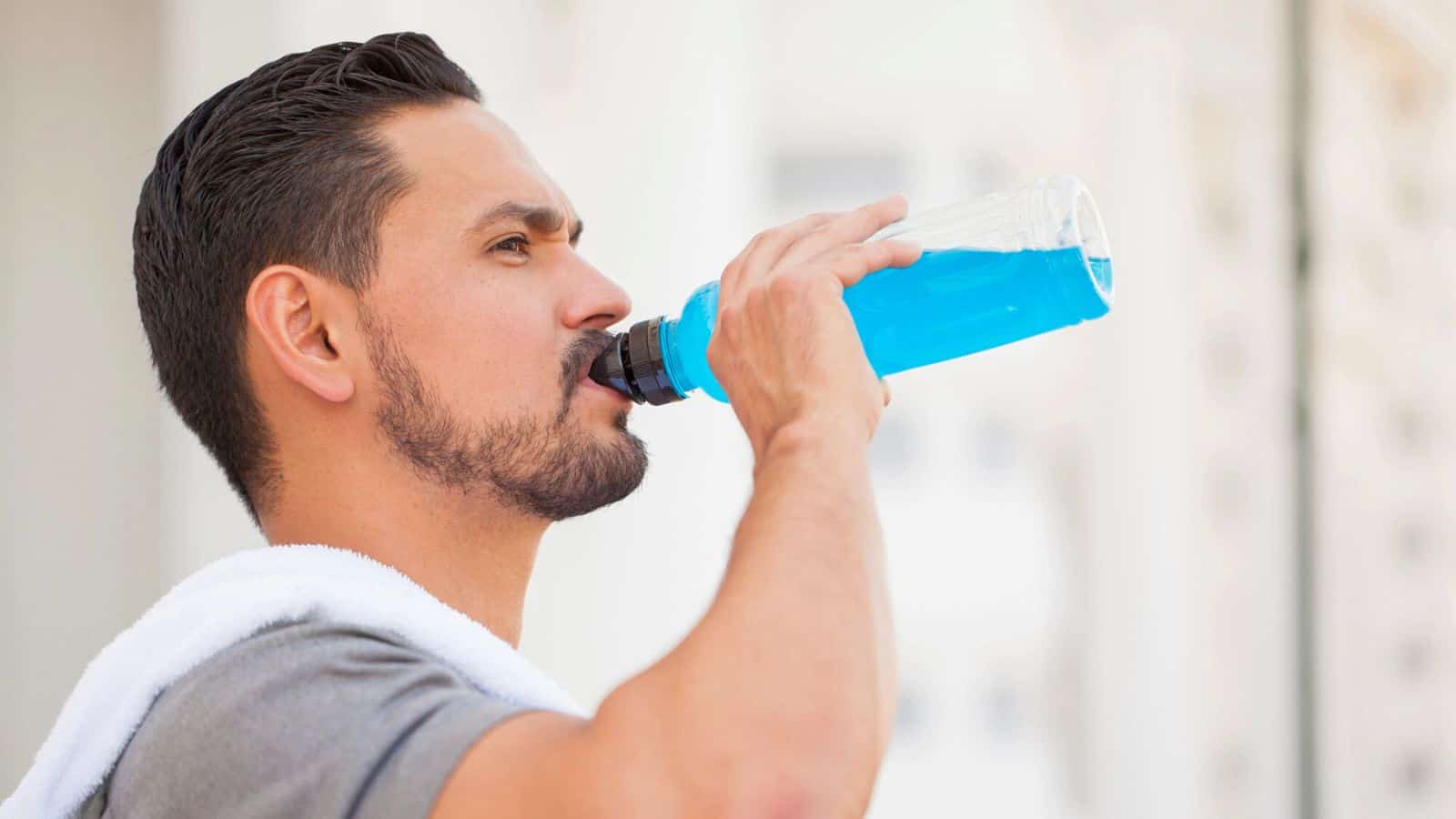
Regularly drinking sports drinks can lead to an excessive intake of sugars and sodium, which can have several negative impacts on your health. These beverages are formulated to replenish electrolytes lost during intense physical activity, such as long-distance running, high-intensity interval training, or competitive sports. However, when consumed casually or without the corresponding physical exertion, the high sugar and sodium content can quickly add up. The sugars in these drinks contribute to a higher calorie intake, which can lead to weight gain over time. Opting for low-sugar electrolyte solutions available that can effectively replenish lost minerals without the added calories.
Drinking from Plastic Bottles

Using plastic bottles for beverages can pose significant health risks due to the potential for chemical leaching. Many plastics contain harmful substances such as Bisphenol A (BPA), which can seep into the liquid, especially when the bottles are exposed to heat or sunlight. BPA is known to disrupt endocrine function, which can lead to hormonal imbalances and potentially impact heart health. Long-term exposure to these chemicals has been linked to an increased risk of cardiovascular diseases, including hypertension and heart attacks. To minimize exposure to these harmful substances, consider switching to safer alternatives such as glass, stainless steel, or BPA-free bottles.
Using Alcohol as a Stress Reliever

Turning to alcohol to manage stress can lead to dependency and various health issues, including heart disease, high blood pressure, and liver damage. While alcohol may give you temporary relief, it does not address the underlying causes of stress and can exacerbate mental and physical health problems over time. Seeking healthier stress management techniques, such as exercise, meditation, or talking to a professional, can promote better long-term well-being and heart health. Moderation in alcohol consumption is key to avoiding these risks.
Drinking Cocktails with Sugary Mixers

Cocktails mixed with sugary sodas or syrups can significantly increase your calorie and sugar intake, leading to a host of health issues. These sugary additives can turn a simple drink into a high-calorie indulgence, which can contribute to weight gain over time. Excess weight is a known risk factor for numerous health problems, including heart disease, diabetes, and metabolic syndrome. Opting for cocktails with natural mixers like soda water, fresh fruit, or herbal infusions can significantly reduce the sugar content and make your drinks healthier.
Using Non-Dairy Creamers
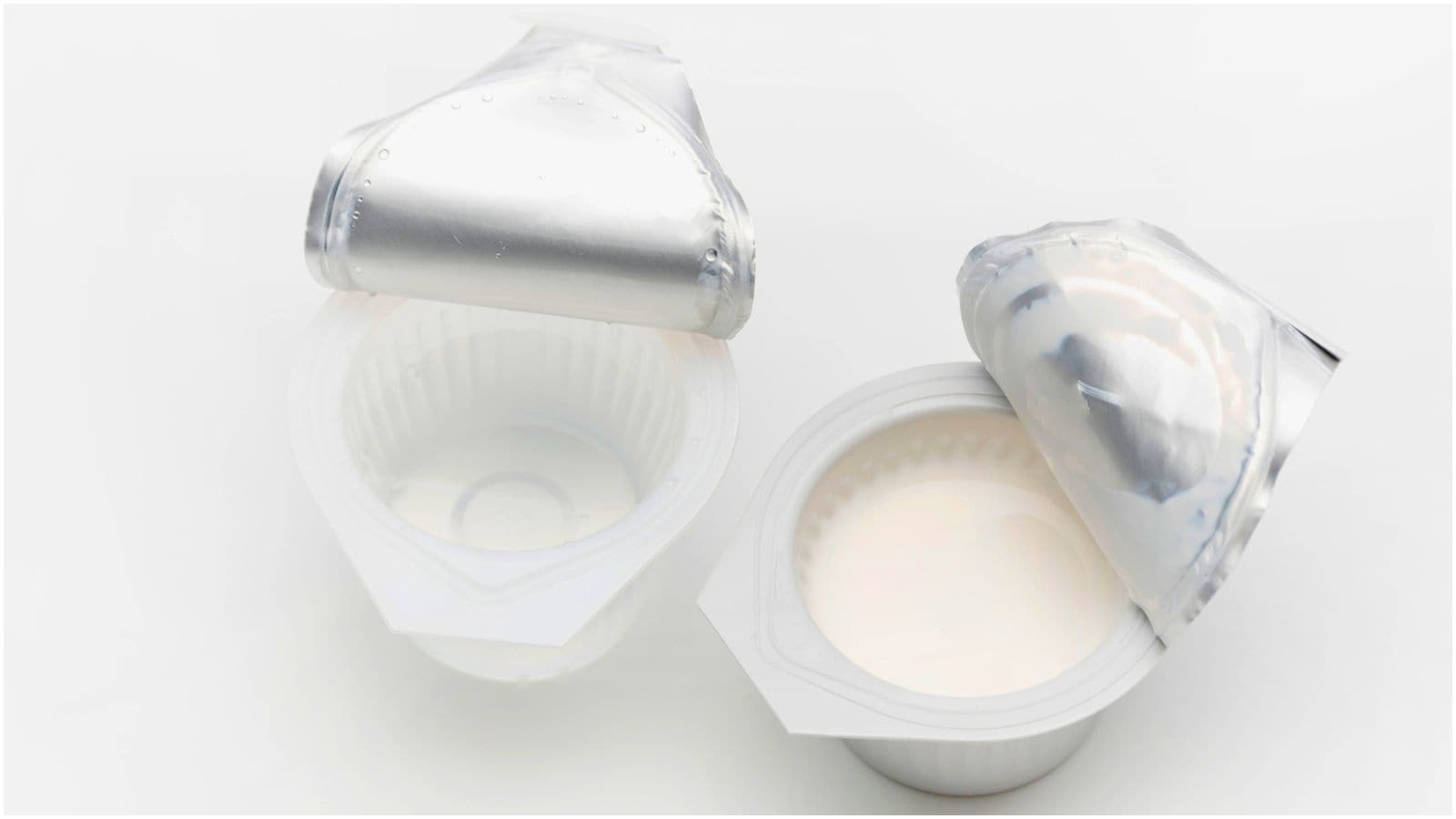
Many non-dairy creamers contain added sugars, artificial flavors, and trans fats, all of which can have a detrimental impact on your heart health. Added sugars contribute to increased calorie intake, which can lead to weight gain and elevated blood sugar levels. Over time, this can result in insulin resistance and type 2 diabetes, both of which are significant risk factors for heart disease. Opting for natural alternatives like almond milk, oat milk, or coconut milk can be a much healthier choice for your beverages. These plant-based options are often lower in calories and free from the harmful additives found in many non-dairy creamers.
Sip Smart, Live Long

In the end, taking care of your heart doesn’t have to be complicated or restrictive. By simply being aware of your drinking habits and making a few adjustments, you can make a big impact on your heart health. Swapping out sugary drinks, cutting back on excessive alcohol, and staying hydrated with water are all straightforward changes that can lead to great benefits.
Remember, it’s all about balance and making choices that support your well-being. You don’t have to give up everything you love; just be mindful and make smarter decisions. Your heart will thank you, and you’ll likely feel better overall, with more energy and vitality.
So, take these tips to heart—literally. Small, consistent changes can lead to a healthier, happier you. Cheers to making choices that keep your heart strong and your life full of vitality. Here’s to a healthier heart and a brighter future!
Steer Clear From These Sugary Drinks You Didn't Know Were Bad for Your Heart

Want to know more about which drinks you should avoid? A lot of popular beverages are loaded with sugars that can affect your heart health. From flavored coffees to seemingly healthy juices, the sugar content can be surprisingly high. Even drinks marketed as healthy options can have more sugar than you’d think. This extra sugar can add up quickly, making it harder to maintain a healthy lifestyle and putting extra strain on your heart.
Making smarter choices with what you drink can lead to great improvements in your health. By cutting back on sugary drinks and choosing healthier alternatives, you can reduce your sugar intake and help keep your heart in great shape!
Read it Here: Steer Clear From These 15 Sugary Drinks You Didn't Know Were Bad for Your Heart
Reasons Why Experts Say Drinking Water Before Sleep is a Bad Idea

As we've mentioned earlier, drinking water before bed is a bad idea. Sure, staying hydrated is great, but timing is key. Picture this: you're snug in bed, drifting off to sleep, and suddenly, you need to make a trip to the bathroom. Not once, but multiple times. Annoying, right?
If this isn't enough to throw you off and stop you from chugging water before bed, we've listed 14 reasons why this habit can be dangerous to your health. Not only can it affect your sleep cycle, but it can also impact your bladder, heart, and digestive health, as well as exacerbate certain medical conditions.
Read it Here: 14 Reasons Why Experts Say Drinking Water Before Sleep is a Bad Idea

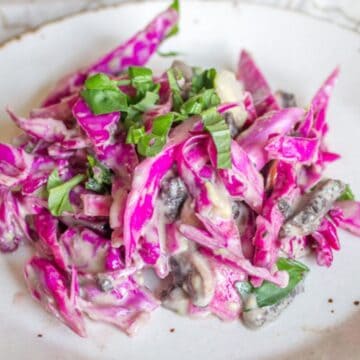




Tell Me What You Think!